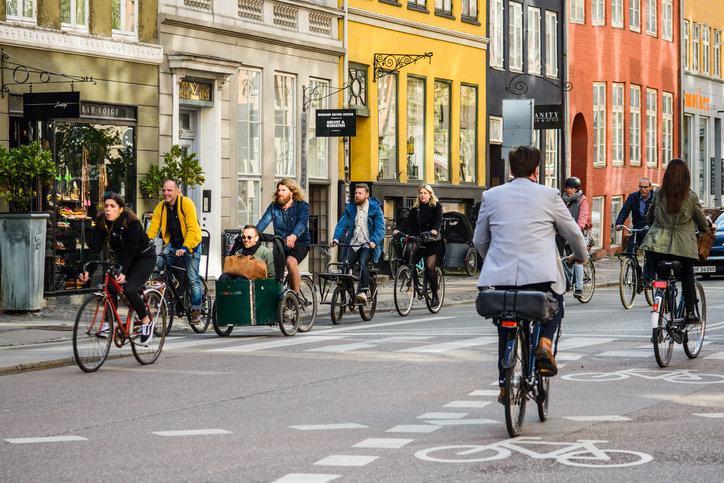In which city will you find 62% of residents biking to work or school?
Would it surprise you that the same city’s traffic lights are coordinated to favor cyclists over motorists?
What if I hinted that this city has built bicycle super highways to promote commuting for cyclists?
You may have guessed that the answer is Copenhagen, the most bike-friendly city in the world. According to resident data, there are 5.6 bicycles for every car in the city.
Copenhagen’s design and culture make it easy to adopt biking as a method of transportation, even for newcomers. Rentals are everywhere, with 100 Bycyklen(City Bikes) stations around the capital. Each bike is equipped with a tamper-proof tablet that transacts the rental and facilitates navigation.
After a quick registration, anyone can borrow a City Bike on a per-hour basis, with a prepaid package, or via monthly subscription.
Biking ease doesn’t end at Copenhagen’s city limits. In an effort to combat traffic congestion, reduce harmful CO2 emissions, and support residents’ health, Denmark’s Capital Region partners with 23 surrounding municipalities to create safe cycling infrastructure for two-wheeled commuters.
Fourteen of the top 20 most bike-friendly cities are in Western Europe, but Bogotá, Colombia breaks into the list for the first time in 2019 at number 12. See the list here.
What makes cycling work in all these cities is a combination of factors. Bicycle infrastructure that provides designated cycling space and traffic calming measures that prioritize biker safety are critical. Bike-sharing options are important, as is a general culture that accepts cycling as a good way to get around – even for commercial transport. Urban planning, strong bicycle advocacy, and political support also contribute to successful bike-friendly cities.
For individuals, the health benefits, relief from traffic, and greater connection to the city are all good reasons to ride a bike. So even if your last spin on a bike was as a child, maybe it’s time to hop back in the saddle and join the cycling culture.


